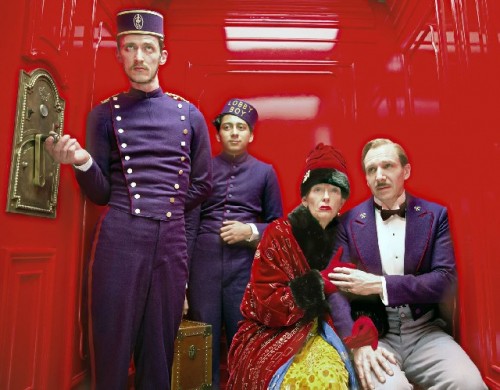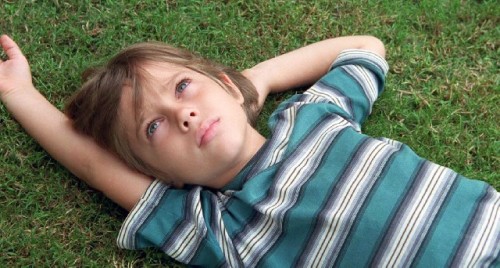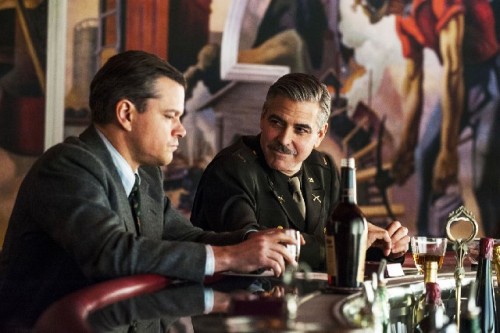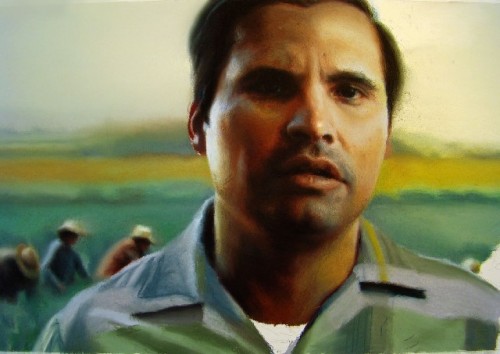The 64th Berlinale Set New Records
Film Festival reigned February 6-16
By: Angelika Jansen - Feb 19, 2014
The 64th Berlinale, the largest international film festival in Europe came to a close and Berlin reverted back to normal life. Until then, from February 6-16, 2014, this huge cinematographic festival reigned supreme. Unlike in Cannes, the general public is invited to participate, by attending the screenings, festival discussions, happenings and in deciding on audience favorites. There was the usual fight for tickets to one of the approximately 400 movies with screenings day and night at over 20 venues with many multiple theatres.
Although the main venues accommodate approximately 900 people at one viewing, not a seat remained empty for the major categories: Competition, Panorama, German Cinema and Berlinale Specials. In the category Forum more experimental films are shown in smaller theaters. A record 330.000 tickets were sold to international presentations that nobody in Berlin had heard of in advance.
With one exception – “Monuments Men” with George Clooney as director, main actor and script was anxiously awaited. The film about the staggering amount of art treasures found and saved at the end of WWII by the real Monuments Men disappointed, despite the preemptive theme of art stolen by the Nazis that resurfaced recently in Munich. Clooney was and remained the super star of the Berlinale.
This year brought a dazzling array of international stars. So many came and Berlin was giddy with joy to watch films, gaze at the stars and indulge in parties. Besides Clooney, Wes Anderson, Cate Blanchett, Adrian Brody, Matt Damon, Danielle Darieux, Ralph Fiennes, Diego Luna, Bill Murray, Volker Schloendorff, Tilda Swinton, Wim Wenders and so many, many more took the opportunity to walk the red carpets of the Berlinale venues. When the big prizes, the Golden Bear and the Silver Bears were presented on Saturday, February 15 at the Berlinale Palast, some of the American presentations also won.
The biggest surprise and a point of pride for Texas were the contributions of several Texans. Two of them, Wes Anderson and Richard Linklater, were contenders for a big prize in the Competition, the main category of major movies to be selected for the Bear Prizes. Both were not newcomers to the Berlinale. Wes Anderson’s quirky farce “The Grand Budapest Hotel” about a fancy European hotel and its fading glitz between the two world wars was told as a story of its surreal concierge Monsieur Gustave (Ralph Fiennes) and his interaction with the eccentric clientele. It’s racy camerawork and slapstick approach made the world premiere of this opening film at the Berlinale into a joyous occasion to watch.
I was surprised to see that it was filmed in my hometown Goerlitz, an architectural jewel on the Polish border. Although the biggest prize, The Golden Bear went to the Chinese thriller “Bai Ri Yan Huo (Black Coal, Thin Ice), Anderson received the second most important prize, the Silver Bear Grand Jury Prize.
Richard Linklater’s “Boyhood” was filmed over a period of 12 years with the same actors. It followed the childhood of Mason (Ellar Coltrane) with an obnoxious sister and parents that are divorced and get remarried several times. It had its international premiere here and intrigued the public and critics alike. Luckily there was no reason for a people’s uprising, as some critics had threatened jokingly, if it were not to get a prize. The film was awarded the Silver Bear for Best Directing.
Both directors are from Houston and their films are certain to make it to the big movie theaters world-wide. The international jury with US producer James Schamus as president, US producer Barbara Broccoli and US actress Greta Gerwig were three of the eight jurors that had to decide on the prizes. The others were: Trine Dyrholm, actress, Denmark; Mitra Farahani, director, Iran; Michel Gondry director, France; Tony Leung, actor, People’s Republic of China; Christoph Waltz, actor, Austria.
The Berlinale Special, the section for extraordinary films not in the Competition, offered two productions that impressively reflected aspects of American life. David O. Russell’s “American Hustle” about two con artists had its German premiere here and charmed the audience and the critics. The other one, Diego Luna’s “César Chávez,” about the civil rights labor leader’s fight to organize Californian migrant workers opened on February 12 to big applause. It will have its American premiere on March 28. The poster will show Michael Peña as Chávez and was created by Vincent Valdez. The San Antonio artist Valdez, who is here on an art residency at Kuenstlerhaus Bethanien of the Blue Star Contemporary Art Museum, was commissioned to do the poster in Berlin.
A very special delight was served at the 8th “Kulinarisches Kino” of the Berlinale (culinary cinema) with the presentation of “El Somni” (The Dream). This multimedia orgy for eyes and ears about the culinary art of the fabulous Roca brothers from Girona, Spain, was proven correct at a subsequent dinner. Thus, not only stars of the screen but also superstars of the culinary world gave their debut at the 64th Berlinale.
Another highlight of this Berlinale was the international premier of the digitally restored version of Robert Wiene’s “Das Cabinet des Dr. Caligari” on February 9th. This silent movie from 1920 was shown at the prestigious Philharmonie. Not Sir Simon Rattle, but the famous New Yorker jazz musician John Zorn accompanied the movie live at the organ. What a treat!
There is so much more to tell. It was a festival to document the troubles of our human existence in tragicomic terms. The filmed “documentations” were mostly told in vignettes of personal experiences or coming-of-age-films.
The German movie by Dietrich and Anna Brüggemann “Kreuzweg” (Stations of the Cross) chronicled the ordeal of 14-year old Maria and how a narrow-minded interpretation and adherence to religious dogma can destroy a young life. It received the Silver Bear for Best Script.
Between the funkiness of The Grand Budapest Hotel” and the intensely realistic “Kreuzweg” there are about 400 other films that interpret the joys and foibles of man-kind in cinematic terms. Many were worth seeing, of course impossible to accomplish. Thanks goes to the head of the Berlinale for the past 13 years, Dieter Kosslick, and his team.





